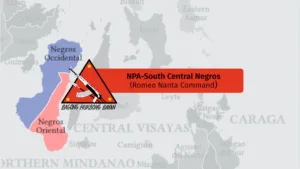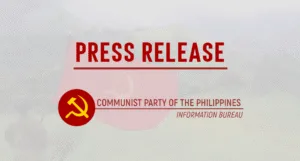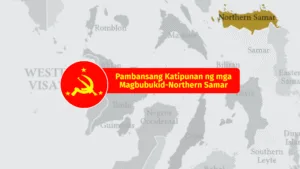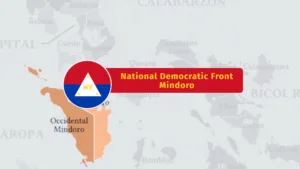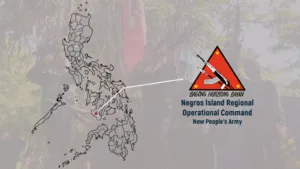By FIDEL V. AGCAOILI
Chairperson
NDFP Human Rights Committee
The Human Rights Monitoring Committee of the National Democratic Front of the Philippines (NDFP) would like to make the following clarification in connection with its exploratory meeting with the United Nations (UN) Special Representative on Children and Armed Conflict, Ms. Radhika Coomaraswamy on 7 April 2011 at the Mandarin Hotel in Makati:
In the said meeting with the UN Special representative on Children and Armed Conflict, we were handed a generic proposed action plan between the UN Working Group on Children and Armed Conflict and armed groups in internal conflicts with States for consideration and study by the NDFP.
We replied that we shall relay the generic proposed action plan with the leadership of the Philippine revolutionary movement. We also said that said generic proposed action plan can be discussed during the planned visit of the UN Special Representative in May 2011 in Utrecht, The Netherlands to meet with the NDFP Negotiating Panel.
We also submitted a letter of protest to the UN Special Representative in connection with its yearly reports to the UN Secretary General to the UN Security Council and the General Assembly. We attached herewith a copy of said letter for the information of everyone.
At no time during the meeting did we acknowledge the existence of so-called child soldiers in the ranks of the New People's Army (NPA) given the policy directive of the Communist Party of the Philippines (CPP) to raise the recruitment age to 18 into the NPA as early as 1988 and reiterated in two memoranda by the Military Commission of the Central Committee (CC) of the CPP in August 1999 and the Executive Committee of the CPP in October 1999, respectively.
We are issuing this clarification to dispel any wrong impression which may have been created in the press release issued during the media conference of the UN Special Representative on Children and Armed Conflict on 9 April 2011 regarding the NPA's alleged recruitment of children.
Letter to Ms. Coomaraswamy
Fidel Agcaoili
Chairperson, NDFP Human Rights Monitoring Committee
7 April 2011
Ms. Radhika Coomaraswamy
UN Under Secretary General and
UN Special Representative of the Secretary General
for Children and Armed Conflict
United Nations, New York, USA
Dear Ms. Coomaraswamy,
We thank you for agreeing to meet with the members of the National Democratic Front of the Philippines (NDFP) Human Rights Monitoring Committee for an exploratory dinner on 07 April 2011 at the Mandarin Hotel in the Philippines.
We have read the relevant UN Security Council Resolutions on children and armed conflict and the yearly reports of the UN Secretary General to the UN Security Council and the UN General Assembly on children and armed conflict, as well as the two special reports by the UN Secretary General on the situation of armed conflicts in the Philippines (24 April 2008 and 21 January 2010) and the 3 October 2008 "Conclusions on Children and Armed Conflict in the Philippines" by the UN Security Council acting as the Working Group on Children and Armed Conflict.
In this regard, we wish to make the following observations:
˜ The first time the New People's Army (NPA) was cited by the UN Secretary General for alleged recruitment and use of children was in November 2002. This was right after the Communist Party of the Philippines, the NPA and Prof. Jose Maria Sison were put in the "terrorist" list in August and October 2002 by the governments of the US and the member-States of the European Union at the instigation and lobbying of the Government of the Philippines (GPH, formerly designated as GRP).
The inclusion of the NPA in the report of the UN Secretary General was made despite the fact that as early as 1988, the Philippine revolutionary movement had adopted the minimum age of 18 years for recruitment to the NPA and that such policy decision had been reiterated in two memoranda by the Military Commission of the Central Committee (CC) of the CPP in August 1999 and the Executive Committee (EC) of the CC of the CPP in October 1999, respectively.
Thereafter, the NPA has been listed in Annex II of the yearly reports of the UN Secretary General on children and armed conflict for alleged recruitment and use of children based on biased reports by agencies of the GPH such as the Armed Forces of the Philippines (AFP) and the Department of Social Welfare and Development (DSWD) and on a mere general statement and/or unsubstantiated allegations by unidentified sources, as well as the unjust and unwarranted application of the Paris Principles on the NPA. It must be noted that the Paris Principles is not an international instrument, is lopsidedly against national liberation movements and is violative of the rights of children to live with their families in communities of their choice and to believe in the aspirations of their parents for an independent, just and prosperous Philippine society.
Such arbitrary listing is not only unjust but is also contrary to the standards set in Security Council Resolution 1539 (April 2004) which requires the monitoring and reporting mechanism "to provide timely, objective, accurate and reliable information on the recruitment and use of children." In fact, we notice that in some reports of the UN Secretary General after 2007, the findings of the Country Task Force for Monitoring and Reporting (CTFMR) is given less credence with respect to the biased reports of GPH agencies, despite the fact that reports of the CTFMR have generally undergone data verification and field validation.
Moreover, while the UN Secretary General mentions the practice of the GPH forces of torturing innocent children into admitting membership in the NPA and "of children being detained by security forces for alleged association with armed groups who were ill-treated, tortured, forcefully interrogated without counsel, and deprived of food and education", the reports of the Secretary General to the Security Council on the alleged recruitment and use of children by the NPA have nevertheless relied heavily on allegations by GPH agencies. And despite the numerous violations of the rights of children by the GPH military and security forces, it is the NPA that is persistently included in Annex II of the Secretary General's report.
It seems that the UN is not a forum for national liberation movements to get a fair and objective hearing of its views regarding the situation of armed conflict in the Philippines between the GPH and the forces allied with the NDFP.
As a consequence of the arbitrary listing of the NPA by the UN, the GPH has been deliberately targeting children in its military operations against communities suspected of supporting or under the control or influence of the revolutionary movement. Since 2002, there has been a noticeable increase in the number of children victims in the cruel and brutal war of suppression carried out by the armed forces of the GPH against communities. Children have become victims of aerial and artillery bombardments, rifle strafing of houses, illegal arrest, detention and torture, rape and sexual assault, abduction, occupation of schools and medical centers, forced displacement, and denial of humanitarian access to entire communities. It seems that the GPH has abused the UN processes and mechanisms as means for further suppression of the revolutionary movement.
Based on the above, we cannot but conclude that the NDFP has not received a fair hearing from UN agencies concerned with the issue of children and armed conflict. We have always been open to have a dialogue with you as UN Special Representative of the Secretary General for Children and Armed Conflict except for the GPH objection to such a meeting. We would therefore like to reiterate our invitation to you to have a meeting with the NDFP Negotiating Panel in Utrecht, The Netherlands on a date at your convenience.
For the NDFP Human Rights Monitoring Committee,
FIDEL V. AGCAOILI
Chairperson


